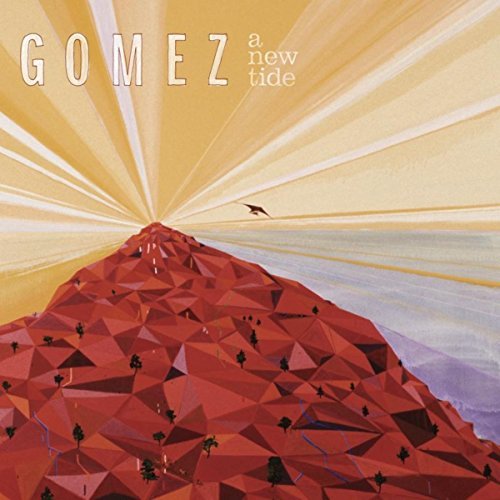
Gomez
A New Tide
Release Date: Mar 31, 2009
Genre(s): Indie, Rock
Record label: ATO
Music Critic Score
How the Music Critic Score works
Buy A New Tide from Amazon
Album Review: A New Tide by Gomez
Fairly Good, Based on 7 Critics
Based on rating 8.1/10
Playing it safe shouldn’t sound this greatAfter winning the Mercury Music Prize in 1998 for its debut, Gomez has gradually had more success in the U.S. with each progressive album, even as the band’s critical and commercial cachet back home in England has eroded. Both trends can probably be blamed on a smoothing out of rough edges, causing early fans—who flocked to the fuzzy guitars, growling vocals and Waits-ian sound collages—to wince at the more conventional pop/rock of recent albums.
Based on rating 8/10
I truly wish it were possible to write about a Gomez album without falling back on mentions of the British band’s obvious debt to American roots, blues, and R&B music. The influence is undeniable, but it always feels like an undervaluing of the breadth of Gomez’s artistry to have to say so. The band’s peculiar level of popular awareness perhaps mandates it; far from ubiquitous, but certainly not obscure, Gomez is a band that has to be gingerly reintroduced by reviewers with every album.
Based on rating 6/10
My first experience with Gomez was borrowing Liquid Skin from my local library when I had first started high school, a time I could not yet afford cds on any regular basis and my parents were still not convinced we needed to be connected to the world wide web. Among the bad country compilations and boy bands, I remember picking up Liquid Skin and staring at the strange cover art on the front, intrigued. I had no idea Gomez had won the Mercury Prize for their debut, 1999’s Bring It On, and had been heralded as the latest British darlings.
Based on rating 5.5/10
Screw the Oscars curse. The Mercury Prize, Britiain’s most respected music award, is the real career-killer disguised as a watershed moment in a band’s career. The list of past winners and snubs at times reads like high comedy. M People over Parklife? Roni Size/Reprazent over OK Computer? Yet, with the case of Gomez, the repercussions of their 1998 Mercury Prize for their debut, Bring It On, are more tragedy than farce.
Based on rating 5.4/10
Like mad scientists, Gomez have been trying to concoct a hybrid of Britpop and American roots music for more than a decade now, to varying degrees of success. Their debut, Bring It On, which beat out Pulp's This Is Hardcore and Cornershop's When I Was Born for the 7th Time for the 1998 Mercury Prize, seemingly set a blueprint for future experimentation with a shaggy-haired combination that sounded raw yet ambitious, unforced yet focused. On their too-quick follow-up, 1999's Liquid Skin, Gomez buffed away most of the rough edges and derived a glossier, showier sound.
Based on rating 2/5
After a Mercury-winning start with 1998's Bring it On, Gomez's slide into semi-obscurity in the UK has been tempered by blossoming sales Stateside. So are we missing much? Well, yes and no – A New Tide is a respectable affair reminiscent of the Beta Band at best (Airstream Driver) and David Gray at its coffee-table worst, courtesy of vocalist Ian Ball's folksy bleat. .
Opinion: Mediocre
Eleven years after the emergence of a puppy-faced quintet of unlikely blues-rockers from the north of England, A New Tide ebbs and flows classic Gomez. The group's sixth studio album is awash in flawless musicianship, "Little Pieces" grooving with bursts of energy punctuated by Ben Ottewell's grumbly vocalizations. "Airstream Driver" thumps a genuine road song, with highlight "Win Park Slope" the striver's tale, singer Ian Ball struggling to balance his ambition with his humanity.
'A New Tide'
is available now

